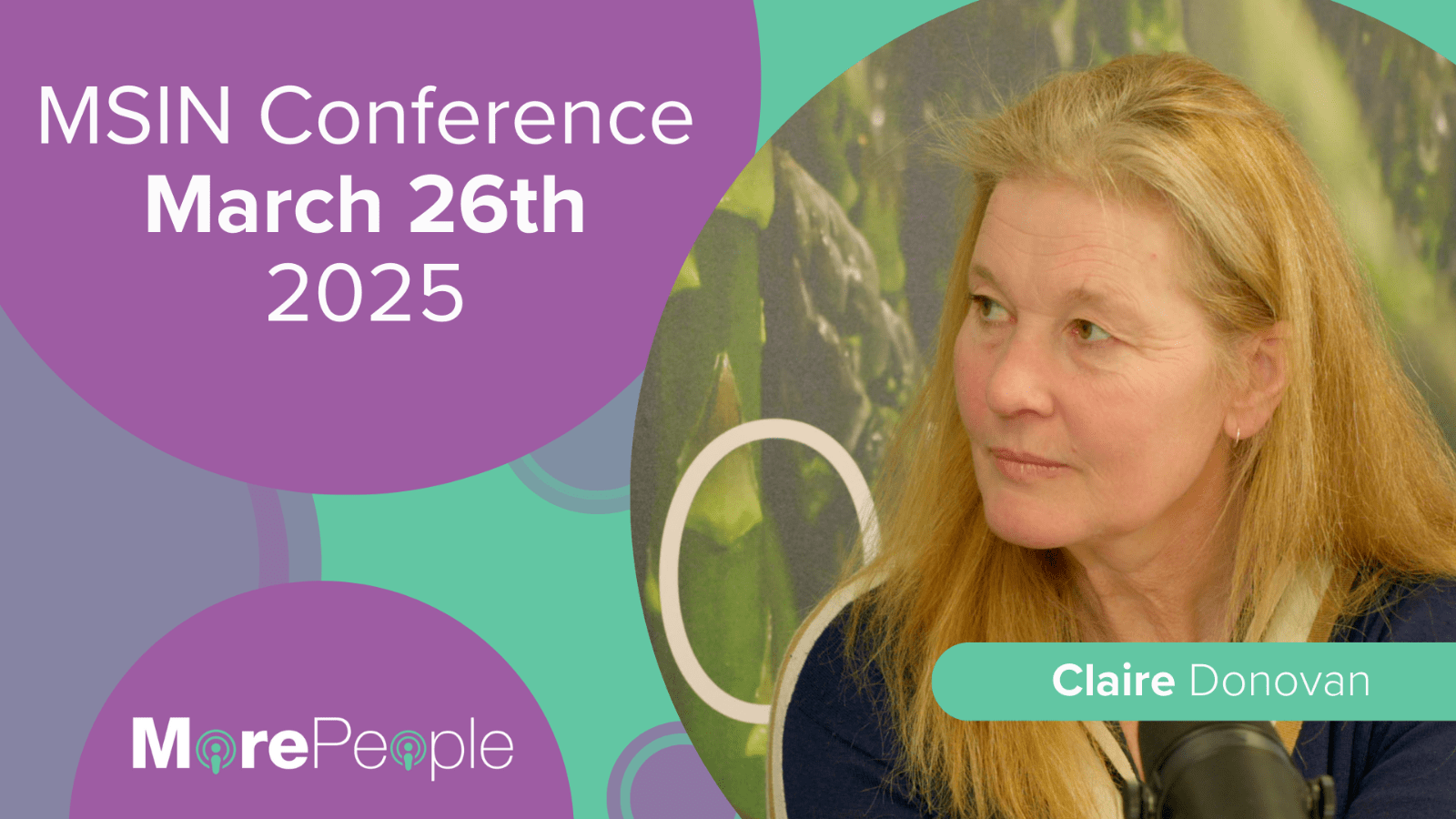
Episode 46: The MorePeople Podcast with Claire Donovan Part 2
Disrupting Modern Slavery in Our Food Supply Chains: A Conversation with Claire Donovan
In a powerful and deeply insightful episode of The MorePeople Podcast, Managing Director Richard Hanwell is joined once again by Claire Donovan, a leading voice in ethical trade and sustainability within the fresh produce industry. This time, the focus turns to a topic that affects all of us - modern slavery in our food supply chains - and the urgent work being done to tackle it.
Claire currently leads the EMSN (Modern Slavery Intelligence Network), a not-for-profit, member-led organisation dedicated to disrupting labour exploitation through shared intelligence. Founded in the wake of Operation Fort, the UK’s largest modern slavery investigation, EMSN helps businesses securely share data to identify and eliminate exploitation from their operations.
Why EMSN Matters
As Claire explains, “It’s about sharing those little bits of information that, when put together, reveal the bigger picture of abuse.”
The EMSN is a collaborative platform that connects businesses, retailers, law enforcement, and NGOs to spot patterns and protect vulnerable workers. Rather than working in silos, EMSN empowers companies to act before harm escalates.
Claire highlights that modern slavery is not always visible and it’s not always what people expect: “We need to get out of our heads this impression of what a modern slave looks like.”
She notes many victims are British nationals, often men who’ve fallen on hard times and become targets of organised crime. This is not just a car wash or nail bar issue, it’s happening inside legitimate supply chains, from food factories to agriculture.
The 2024 EMSN Conference: A Call to Action
This year’s EMSN Conference, supported by Tesco and hosted at their Heart building on March 26th, carries a powerful theme: Disruption.
Claire shares some of the highlights:
Sarah Champion MP – Advocate for stronger legislation around modern slavery.
Emily Kenway – Former adviser to the UK’s Anti-Slavery Commissioner and author, currently researching the link between homelessness and slavery.
Cristina Talens, Wilberforce Institute – Known for her dynamic human rights impact assessments.
An AI hackathon-style session – Pairing tech innovators with operational teams to design solutions that detect and disrupt exploitation in real-time.
Claire puts it simply: “There’s incredible technology out there, but we need to bridge the gap between those building the tech and those dealing with the problem.”
Getting Involved: The Power of Shared Responsibility
A key message from the conversation is that modern slavery prevention is everyone’s business, not just HR or ESG teams. Claire urges companies to bring their operations teams to the table too.
“It’s not about being embarrassed to find something. It’s about being proud to take responsibility,” says Richard. “We’re not talking about minor infractions, we’re talking about people’s lives.”
Through collaboration, EMSN enables companies to act early and support victims before tragedy occurs. It is part of the “protective due diligence” that Claire and her peers strongly advocate.
Join EMSN – Make a Difference
Membership to EMSN is open to any organisation looking to protect its supply chain and workforce. For those attending the conference, there’s even a membership rebate available within three months of joining.
Learn more or become a member at www.emsn.org.uk
As Claire puts it:
“We wouldn't ignore a food safety risk - so why ignore the risk of human exploitation?”
Let’s normalise these conversations, take proactive steps, and stand together as an industry to ensure dignity, safety, and fairness for all workers.
